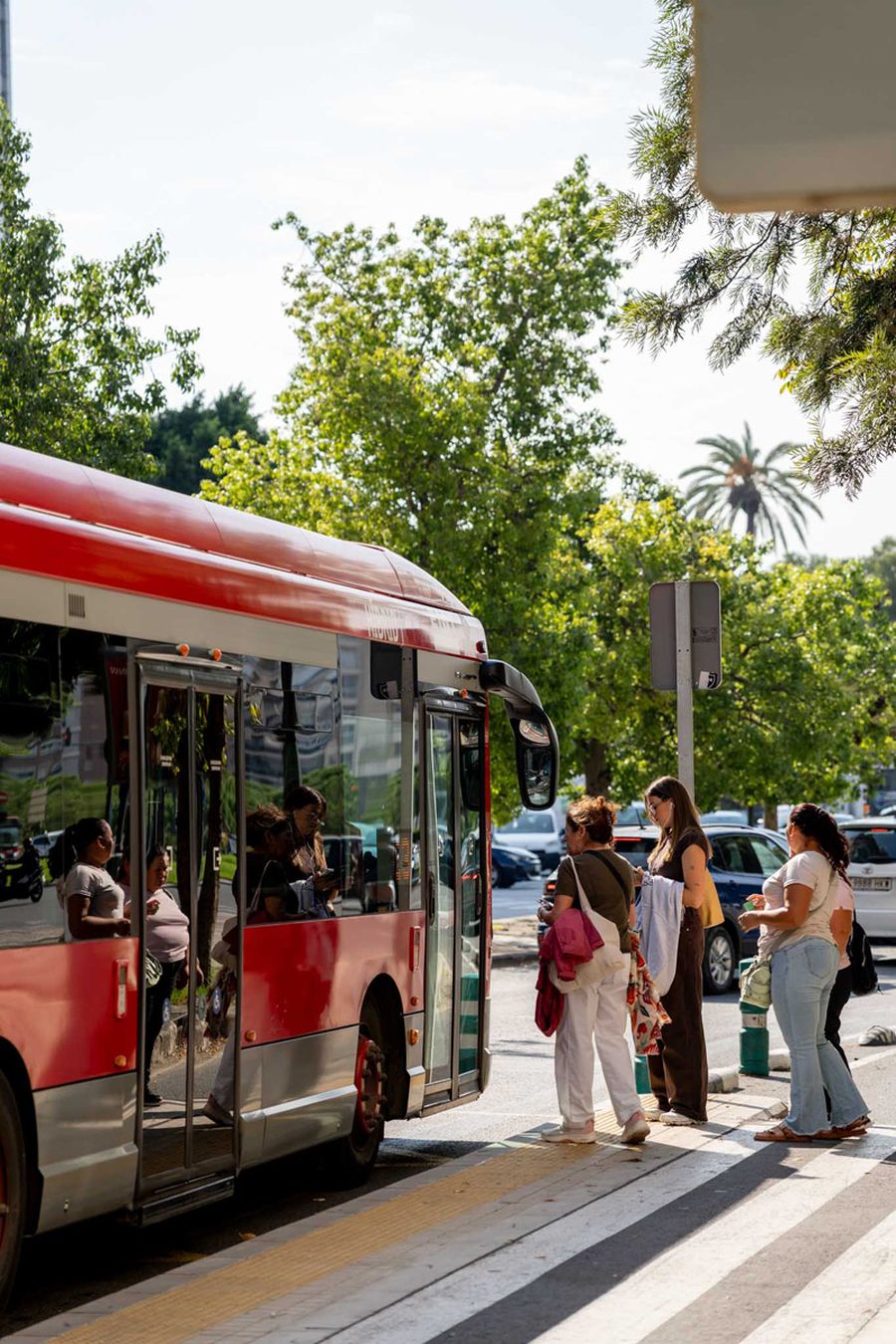Care-focused mobility
Decarbonized transport
Gendered transportation needs
Sustainable mobility solutions
Transport equity
This subtopic defines the overarching framework for transforming urban mobility through a feminist and climate-just perspective. It emphasises the need to decarbonise transport systems while ensuring they accommodate diverse mobility patterns associated with care work, social inequalities, and climate vulnerability. It sets out the principles that guide the development of specific dimensions of mobility — such as active travel, safe public transport, and climate resilience — ensuring that the transition towards sustainable urban transport simultaneously advances social and gender justice.

Recognise the diversity of mobility patterns and establish care work, gender equality, and climate resilience as core criteria for the design, planning, and investment priorities of sustainable urban transport systems.
Redesign urban mobility ecosystems holistically, ensuring that all modes of transport—public, active, shared or informal—integrate climate- and care-sensitive solutions that address differentiated mobility needs.
Adapt public transport, active travel networks and urban transport infrastructure to accommodate evolving patterns of women's work, caregiving and daily living, and respond equitably to the needs of vulnerable communities.
Acknowledge that caregiving-related mobility demands specialised services and infrastructures—such as adapted vehicles, accessible multimodal hubs, community transport programmes, and flexible schedules—to ensure full accessibility and rights to the city.
Integrate climate and social justice principles into the strategic planning and development of low-carbon mobility systems, prioritising infrastructure and services that reduce inequalities, enhance resilience and support collective transport electrification.
Active travel
Safe walking and cycling
Inclusive transportation
Sustainable mobility
Gender-sensitive infrastructure
This subtopic emphasises the importance of promoting active mobility — walking, cycling, and other non-motorised modes — as a fundamental component of a low-carbon and socially just city. It advocates for the design of inclusive and safe infrastructure that eliminates access barriers for women, girls, and vulnerable groups.

Promote active mobility as a central pillar of sustainable transport to reduce urban emissions and improve public health. Develop green corridors, including safe cycle-pedestrian routes, that connect key locations (workplaces, schools, healthcare centres), prioritising access for women and vulnerable groups.
Embed active mobility within green mobility frameworks, systematically removing barriers related to gender, age, and disability.
Ensure that active mobility infrastructures are designed from a dual climate and care perspective. Ensure their adaptation to changing climatic phenomena with draining pavements, sun protection or safe evacuation routes, while maintaining a design adapted to specific needs, such as children's circulation or cargo bicycles.
Anti-harassment policies
Women’s safety in transit
Gender-based violence prevention
Surveillance and monitoring
Safety infrastructure
This subtopic addresses the transformation of public transport from the perspective of safety and gender equity. It proposes measures aimed at eliminating harassment, ensuring safe spaces, and building public mobility systems that respect the rights and meet the needs of women and historically marginalised groups.

Design public transport systems from a gender-sensitive perspective, ensuring that the safety needs of women, caregivers, and marginalised groups are prioritised across all stages of planning, implementation, and operation.
Implement anti-harassment policies, active surveillance measures, and design standards (such as well-lit stations and safe stops) to prevent gender-based violence in public transport, particularly during night-time hours.
Establish rapid response protocols to address incidents of violence or insecurity, and provide comprehensive training for all transport personnel on gender equality, human rights, and anti-discrimination practices.
Equitable transport systems
Resilient transport systems
Affordable transit solutions
Eco-friendly transport
Transit-oriented development
This subtopic focuses on building public transport networks that are low-carbon, resilient to the effects of climate change, and designed to address territorial inequalities. It seeks to ensure that the benefits of the green transition are accessible to historically vulnerable communities.

Expand public transport networks to provide affordable, safe, and accessible services for marginalised communities — particularly women, caregivers, and low-income populations — with a focus on prioritising underserved areas.
Develop low-emission and climate-resilient transport systems capable of operating safely during extreme weather events, including heatwaves, storms, and floods.
Integrate climate justice and social equity principles into transport planning, ensuring that the benefits of decarbonisation — such as electric fleets and green corridors — are distributed equitably across all urban areas, while actively preventing green gentrification.
This project has been funded with support from the European Commission. This website reflects the views only of the authors, and the Commission cannot be held responsible for any use which may be made of the information contained therein.